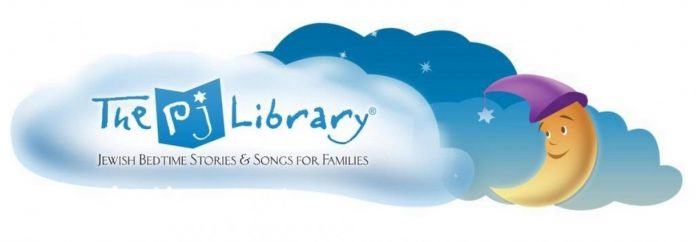By Jaime Uranovsky
PJ Library (‘PJ’ standing for ‘Pyjama’) ‘at its simplest core, is about sharing Jewish stories,’ says Tamar Remz, the organisation’s representative who visited Cape Town in February.
The programme, which now runs in fourteen countries, was started by world-renowned philanthropist and real-estate tycoon, Harold Grinspoon twelve years ago in Western Massachusetts, and provides free books to Jewish children, ages three to eight, every month.
Grinspoon’s wife, Diane Troderman ‘was always saying to Harold that we were missing the most important years of a family’s life,’ recounts Remz. ‘Some of us are in Jewish schools; some of us are going to Jewish camps, but where are we at the beginning of a family’s life when values are formed and family identity is shaped? Where are we at those bedtime moments when families are really snuggling up together, shaping who they are?’ These key questions, coupled with the lack of good-quality, Jewish children’s books prompted Grinspoon to establish the organisation. He reached out to Remz, who came onboard and the two started out in Grinspoon’s native town which, as Jewish/shtetl coincidence would have it, happened to be the same small town from which Remz’s own mother hails.
‘We thought there were about 200 to 250 families raising children, Jewishly, up to age five [in the area], and we started sending out books; told people to tell their friends. Before we knew it, we had 700 people signed up. To us, that was the first indicator that we had something magical… That was when we said, “this is our big risk; let’s take it, let’s go beyond our local community.”’
Today, 560 000 Jewish children and their families receive books monthly from PJ Library, and the programme ‘is the largest single shared experience of Jews in the world today,’ besides for attending shul and celebrating Jewish holidays. The books are available in English, Hebrew, Russian and Spanish, and address universal morals and values, while showcasing how they fit into Jewish ideals and principles. Remz states, ‘We don’t want to force families to choose between ‘quality’ and ‘Jewish.’ Parents are reading to their children at night anyway; let’s infuse Judaism into that. So, it has to be quality. We are by far the dominant supplier of Jewish children’s books.’
South Africa will be either the fifteenth or sixteenth country to adopt the programme when it launches in April or May this year, and books will be sent to Cape Town, Johannesburg, Port Elizabeth, Pretoria and Durban.
In South Africa, the programme will function through partners, the leading ones being the Jewish Board of Education in Johannesburg and Herzlia in Cape Town. However, there are many other partner organisations who are involved, who work closely with the community. For example, Jewish communal organisations and shuls, museums, libraries and WIZO.
Each month, the lead partners provide books to Jewish children, which are then sent home with the latter and kept. Each child between the ages of three and eight will receive books, and the programme is broken up into three different age ranges, with each age-group being gifted the same story.
‘United Herzlia Schools will be the partner in Cape Town who helps with distributing and Sinai Academy and Phyllis Jowell are, of course, also involved. But, [this programme] is not just for children who go to these schools; all Jewish children are welcome. It’s a matter of figuring out who to get books for,’ Natalie Barnett says. Barnett continues, ‘United Orthodox and Progressive synagogues [are all involved]. This is a community initiative. It will be used as part of the literacy curriculum in all Jewish schools here, but it’s not only about schools but about Jewish community events. It’s all about sharing and engaging with PJ on different levels and getting everyone involved. There are some non-Jewish kids at Herzlia and obviously, once they’ve joined [the school] they are part of the community as well.’
The launch of PJ Library in the country will be built upon two pillars: menschlichkeit and the school/home/parent engagement.
Once the books go home with the child, they inspire conversation with parents, which in turn sparks new ideas to be brought back to school and community life.
Remz notes that the books are ‘always a gift and this is really important for community leaders to understand. It’s a gift that our foundation, together with you and with other families in the community, makes possible for families to receive. And that gift is something we invite families to pay forward and share over time. It’s a symbolic message to show that we all care and are investing in you and we hope that you too will invest in the Jewish community and in the broader community.’
The organisation, having secured a number of donors already, is also seeking funding in Cape Town to ensure the programme’s expansion to South Africa a permanent one. Vivienne Anstey adds, ‘We’re looking at an incredibly inclusive model… which benefits us by promoting engagement with each other. It’s giving us the opportunity to bring [important conversations] back home.’
Be on the lookout for this exciting contribution to the local Jewish community, with PJ Library books being launched in Cape Town within the next month or two.








